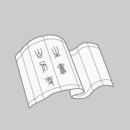
Bryson's Dictionary of Troublesome Words: A Writer's Guide t
书籍内容简介可联系客服查阅,查书找书开票同样可以联系客服
¥ 115 ¥ 115 九五品
库存31件
四川成都
认证卖家担保交易快速发货售后保障
作者Bryson, Bill
出版社PRH 企鹅兰登
ISBN9780141040394
出版时间2022-08
装帧其他
定价115元
货号YB-2734
上书时间2024-08-24
- 最新上架
商品详情
- 品相描述:九五品
- 商品描述
-
内容摘要
书名:Troublesome Words比尔布莱森英文超正典 作者:Bill Bryson 出版社名称:Penguin 出版时间:2009 语种:英文 ISBN:9780141040394 商品尺寸:13.3 x 1.7 x 19.9 cm 包装:平装 页数:256 ★《万物简史》作者比尔布莱森力作 ★很受英美写作者欢迎的“咬文嚼字” ★如果你喜爱英语,那就再也不要错过英语 Bryson’s Dictionary of Troublesome Words《比尔布莱森英文超正典英语麻烦词使用指南》与其说是一本指导类的参考书,还不如说是一本整合了建议和观察,甚至是一些极有价值偏好的参考书。别忘了,没有人有权告诉你该如何组织语言。如果你想说between you and I,或者使用fulsome(过分虚伪而让人生厌的,丰富的)来表达一部分lavish(丰富的,大量的)的意思的话,你就完全有权力这么做,而且你也可以在很多知名作家的文字中找到可以支持的例证。但是,这些用法与那些有资格被称为“好英语”,并且奇特而不断变化的作品是相违背的,意识到这一点可能会对你有所裨益。本书的主要目的,就是要找到这种大多数人一致认同的英语的用法(如果真有此可能的话)。 精彩书评: “这是一本与众不同的英语用法指导书。”——Willialn Satire,《纽约时报》 “这是很棒的英语用法手册之一,我想任何一位英语使用者读了之后都会乐在其中。” ——Katherinc A. Powers,《波士顿环球报》 “每位写作者和编辑都应该有的参考书。”——《洛杉矾时报》 “布莱森展现了他的博学,令人耳目一新……这是一本简单易懂、简明实用的英语用法指南。”——《出版人周刊》 “英语语言是偶然性和不规则性的有趣杂糅,这种没有规律的组合常常与逻辑和常识不符……英语难以驾驭、捉摸不定,这也正是这种语言的魅力所在。然而,任何可以有助于规范语言的方法对我们来说都是有益的。”——比尔·布莱森 What is the difference between mean and median, blatant and flagrant, flout and flaunt? Is it whodunnit or whodunit? Do you know? Are you sure? With Troublesome Words, journalist and bestselling travel-writer Bill Bryson gives us a clear, concise and entertaining guide to the problems of English usage and spelling that has been an indispensable companion to those who work with the written word for over twenty years. So if you want to discover whether you should care about split infinitives, are cursed with an uncontrollable outbreak of commas or were wondering if that newsreader was right to say 'an historic day', this superb book is the place to find out. Review Combines the virtues of a first class work of reference with the pleasure of a good read (The Times) 比尔·布莱森, 世界知名的非虚构作家,1951年出生于美国艾奥瓦州,曾任职于伦敦《泰晤士报》与《独立报》,同时也为《纽约时报》、《国家地理杂志》等撰文。作品主要包括旅游类随笔、幽默独特的科普作品——比如《万物简史》《母语》等等,横跨多种领域,皆为非学院派的幽默之作。他的作品诙谐嘲谑的风格堪称一绝,整体上举重若轻,能让普通读者产生很强的认同感,不失为雅俗共赏的典范,深受读者喜爱,也获得很高的评价。每部作品均高踞美国、英国、加拿大畅销排行榜前茅。 Bill Bryson’s bestselling books include A Walk in the Woods, I’m a Stranger Here Myself, In A Sunburned Country, Bryson’s Dictionary of Troublesome Words, Bill Bryson’s African Diary, and A Short History of Nearly Everything. He lives in Norfolk, England, with his wife and children. Introduction A Note on Presentation Dictionary of Troublesome Words Appendix: Punctuation Bibliography Glossary a, an. Do you say ‘a hotel’ or ‘an hotel’? ‘A historian’ or ‘an historian’? The convention is to use a before the aspirated ‘h’ (a house, a hostage) and an before a silent ‘h’. An is indisputably correct before just four words beginning with ‘h’: hour, honest, honour and heir. Some British authorities also allow an before hotel, historian, heroic and hypothesis, but most prefer a. Errors with the indefinite article become especially common when numbers are involved, as here: ‘Cox will contribute 10 percent of the equity needed to build a $80 million cable system’ (Washington Post). Make it an. Similarly, a is unnecessary in the following and should be deleted: ‘With a 140 second-hand wide-bodied jets on the market, the enthusiasm to buy anything soon evaporated’ (Sunday Times). abbreviations, contractions, acronyms.Abbreviation is the general term used to describe any shortened word. Contractions and acronyms are types of abbreviation. A contraction is a word that has been squeezed in the middle, so to speak, but has retained one or more of its opening or closing letters, as with Mr for Mister and can’t for cannot. An acronym is a word formed from the initial letter or letters of a group of words: radar for radio detecting and ranging, and NATO for North Atlantic Treaty Organization. Abbreviations that are not pronounced as words (IBM, TUC, ITV) are not acronyms; they are just abbreviations. Whether to write NATO or Nato is normally a matter of preference or house style. American publications tend to capitalize all the letters of abbreviations, even when they are pronounced as words. In Britain, generally the convention is to capitalize only the initial letter when the abbreviation is pronounced as a word and is reasonably well known. Thus most British publications would write Aids and Nato (but probably not Seato). Confusing the issue is the fondness of commercial enterprises for employing typographical novelty in their titles, giving themselves names such as 3i, EXcell or PricewaterhouseCoopers. Whether to respect these quirks is often a problem. As a rough rule, I would suggest that a company’s orthographic eccentricities should be noted, possibly even observed, but never overindulged. Just because a company chooses to put a backward letter into its title or to spell its name in small capitals does not entitle it to become a distraction in print. 1234567
— 没有更多了 —












以下为对购买帮助不大的评价